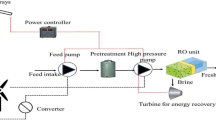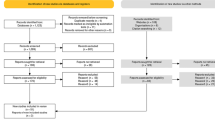Abstract
In the past few decades, freshwater availability and quality for human consumption in the world has reduced significantly due to rapid population growth along with increasing industrial and agricultural demands, as well as uncontrolled urbanization and climate change. Even though Turkey is surrounded by water, its available freshwater per capita per year is less than the world average and much less that those for countries with developed economies [1]. Meanwhile, available freshwater sources in Turkey are diminishing rapidly due to pollution and overextraction associated with significantly increasing water demands. In order to prevent water scarcity in Turkey over the next decades, desalination is expected to be an important option. Appropriate desalination technologies need to be determined for implementation throughout the country.
In this study, potential desalination technologies, namely, multiple-effect distillation (MED), multistage flash distillation (MSF), and reverse osmosis (RO), using conventional and renewable energy sources (RESs) are evaluated, for various geographical locations and plant capacities, with respect to it overall cost and impact on the environment. Much actual plant data and results of a wide range of prior studies are used to estimate the associated costs. Airborne emissions during the operation phase are evaluated to determine the associated environmental impacts. Alternative energy sources such as waste heat from other processes and Turkey’s abundant renewable energy sources (particularly wind, solar, hydro) are examined, and the integration of these sources with desalination is examined and compared to the conventional methods, using consistent criteria.
It is determined that RO is likely to be the most suitable desalination technology for Turkey, with a midsize desalination plant (around 30,000 m3/day capacity) preferred. This result is in part due to the high cost of fossil fuels in Turkey and the low levels of the Mediterranean seawater feed, which reduce the cost of RO by 13 and 21 % with respect to MED and MSF respectively. RO can also help reduce emissions of CO2, NO x , NMVOC, SO x by up to by 38, 42, 73, 60, respectively, compared to alternative technologies, even when waste heat recovery is used. Moreover, RO technology could be further improved by integrating with hydropower, the most compatible renewable energy source for Turkey, which can further reduce the emissions by 83, 82, 80, and 50 %, respectively.
Access this chapter
Tax calculation will be finalised at checkout
Purchases are for personal use only
Similar content being viewed by others
References
Human Development Report (2006) Beyond scarcity: power, poverty and the global water crisis. United Nations Development Programme (UNDP), New York, USA
WHO website. World Health Organization (2010) Facts and figures on water quality and health. www.who.int/water_sanitation_health/facts_figures/en/print.html. Accessed 18 Dec 2010
World Water Council (2000) World water vision, making water everybody’s business. Earthscan Publications Ltd, London, UK
Erdem Z (2010) The contribution of renewable resources in meeting Turkey’s energy-related challenges. Renew Sustain Energ Rev 14:2710–2722
Environmental Statistics (2001) Fresh water pollution by countries. Based on world development indicators. http://www.nationmaster.com
European Environment Agency Website. Use of freshwater resources (CSI 018). Accessed 28 Jan 2009. http://www.eea.europa.eu
Central Intelligence Agency. The World Factbook. www.cia.gov.tr. Accessed 20 Dec 2010
General Directorate of State Hydraulic Works (2009) Turkey Water Report. http://www.dsi.gov.tr. Accessed 18 Dec 2010
Dolnicar S, Schäfer AI (2006) Public perception of desalinated versus recycled water in Australia. J Environ Manag 90:888–900
Cipollina A, Micale G, Rizutti L (2009) Green energy and technology. Seawater desalination. Conventional and renewable energy processes. Springer, Berlin
Water Desalination International website. Key desalination facts. http://www.waterdesalination.com/factssample1.htm. Accessed 25 Dec 2010
El-Dessouky T, Ettouney M (2002) Fundamentals of salt water desalination. Elsevier Science B.V.
Khawaji A, Kutubkhanah I, Wie JM (2008) Advances in seawater desalination technologies. Desalination 221:47
Raluy R, Uche J (2005) Life cycle assessment of water production technologies. Desalination 183:81–93
Raluy G, Serra L, Uche J (2006) Life cycle assessment of MSF, MED and RO desalination technologies. Energy 31:2361–2372
Borsani R, Rebagliati S (2005) Fundamentals and costing of MSF desalination plants and comparison with other technologies. Desalination 182:29–37
Koklas P, Papathanassiou S (2006) Component sizing for an autonomous wind-driven desalination plant. Renew Energ 31:2122–2139
Karaghouli A, Renne D, Lawrance L, Kazmerski L (2009) Solar and wind opportunities for water desalination in Arab Regions. Renew Sustain Energ Rev 13:2397–2407
Zejli D, Benchrifa R, Bennouna A, Zazi K (2004) Economic analysis of wind-powered desalination in the south of Morocco. Desalination 165:219–230
Sanden B, Azar C (2005) Near term technology policies for long term climate targets-economy wide versus technology specific approaches. Energ Policy 33:1557–1576
Ediger V, Kentel E (1999) Renewable energy potential as an alternative fossil fuels in Turkey. Energ Convers Manag 40:743–755
Ozgur M (2008) Review of Turkey’s renewable energy potential. Renew Energ 33:2345–2356
Yuksel I (2008) Global warming and renewable energy sources for sustaining development in Turkey. Renew Sustain Energ Rev 12:372–396
Forstmeier M, Mannerheim F, D’Amato D, Shah M, Liu Y, Baldea M, Stella A (2007) Feasibility study on wind-powered desalination. Desalination 203:463–470
Evrendilek F, Ertekin C (2003) Assessing the potential of renewable energy sources in Turkey. Renew Energ 28:2303–2315
Garcia-Rodriguez L, Palmero-Marreroa A, Gbmez-Camachob C (2002) Comparison of solar thermal technologies for applications in seawater desalination. Desalination 142:135–142
Lamei A, van der Zaag P, von Munch E (2008) Impact of solar energy cost on water production cost of seawater desalination plants in Egypt. Energ Policy 36:1748–1756
Yuksel I (2010) Renewable energy hydropower for sustainable development in Turkey. Renew Sustain Energ Rev 14:2113–3219
The Pembina Institute (2010) Sustainable energy solutions. Renewable energy. Hydropower www.pembina.org/re/sources/hydro-power. Accessed 20 Nov 2010
Murakami M (1995) Managing water for peace in the Middle East: alternative strategies experimental seawater reverse-osmosis desalination. United Nations University Press
Raluy RG, Serra L, Uche J (2005) Life cycle assessment of desalination technologies integrated with renewable energies. Desalination 183:81–93
Kucukali S, Baris K (2009) Assessment of small hydropower (SHP) development in Turkey: laws, regulations and EU policy perspective. Energ Policy 37:3872–3879
Erdogdu E (2009) A snapshot of geothermal energy potential and utilization in Turkey. Renew Sustain Energ Rev 13:2535–2543
Erdogdu E (2009) On the wind energy in Turkey. Renew Sustain Energ Rev 13:1361–1371
Fiksel J (2009) Design for environment. A guide to sustainable product development. 2nd edn
Karagiannis IC, Soldatos P (2008) Water desalination cost literature: review and assessment. Desalination 223:448–456
Mohameda E, Papadakis G, Mathioulakis E, Belessiotis V (2005) The effect of hydraulic energy recovery in a small sea water reverse osmosis desalination system; experimental and economical evaluation. Desalination 184:241–246
Akgul D, Cakmakci M, Kayaalp N, Koyuncu I (2008) Cost analysis of seawater desalination with reverse osmosis in Turkey. Desalination 220:123–131
Turkish Market Case (2012) APS review oil market trends. www.allbusiness.com
Kaya D (2006) Renewable energy policies in Turkey. Renew Sustain Energ Rev 10:152–163
Ozyurt O (2010) Energy issues and renewable for sustainable development in Turkey. Renew Sustain Energ Rev 14:2976–2985
Toklu E, Guney MS, Isik M, Comakli O, Kaygusuz K (2010) Energy production, consumption, policies and recent developments in Turkey. Renew Sustain Energ Rev 14:1172–1186
Wade NM (2001) Distillation plant development and cost update. Desalination 136:3–12
Fiorenza G, Sharma VK, Braccio G (2003) Techno-economic evaluation of a solar powered water desalination plant. Energ Convers Manag 44:2217–2240
Frioui S, Oumeddour R (2008) Investment and production costs of desalination plants by semi-empirical method. Desalination 223:457–463
Bilgili M, Sahin B, Kahraman A (2004) Wind energy potential in Antakya and Iskenderun regions, Turkey. Renew Energ 29:1733–1745
GWI Market Profile (2007) Desalination Markets Report. Accessed 12 Dec 2010
Khan WZ (2009) Desalination of raw water using a polyamide hollow fiber membrane. Desalination 244:59–65
Murakami M (2008) Hydro-powered reverse osmosis desalination for co-generation. Inaugural ceremony international seminar on efficient water use. Uruguay
Ozturk M, Bezir N, Ozek N (2009) Hydropower-water a renewable energy in Turkey: sources and policy. Renew Sustain Energ Rev 13:605–615
Somers B (2010) Energy experts say water use and energy consumption linked, urge conservation. Am Assoc Adv Sci
Author information
Authors and Affiliations
Corresponding author
Editor information
Editors and Affiliations
Acronyms
Acronyms
- CO2 :
-
Carbon dioxide
- MED:
-
Multiple-effect distillation
- MSF:
-
Multistage flash distillation
- NMVOC:
-
Non-metal volatile organic compounds
- PV:
-
Photovoltaics
- RO:
-
Reverse osmosis
- SO x :
-
Sulfur oxide
- RO:
-
Reverse osmosis
Rights and permissions
Copyright information
© 2014 Springer International Publishing Switzerland
About this chapter
Cite this chapter
Hamut, H.S., Dincer, I., Rosen, M.A. (2014). Assessment of Desalination Technologies Integrated with Renewable Energy Sources in Turkey. In: Dincer, I., Midilli, A., Kucuk, H. (eds) Progress in Exergy, Energy, and the Environment. Springer, Cham. https://doi.org/10.1007/978-3-319-04681-5_24
Download citation
DOI: https://doi.org/10.1007/978-3-319-04681-5_24
Published:
Publisher Name: Springer, Cham
Print ISBN: 978-3-319-04680-8
Online ISBN: 978-3-319-04681-5
eBook Packages: EnergyEnergy (R0)




